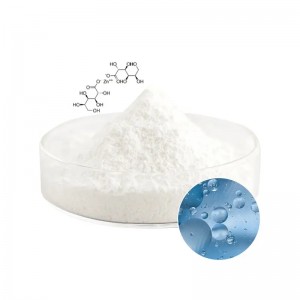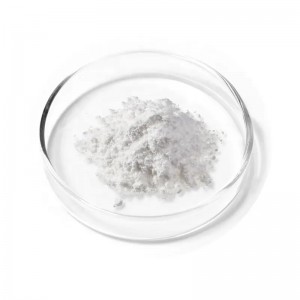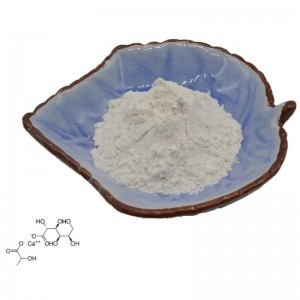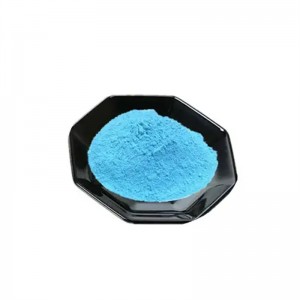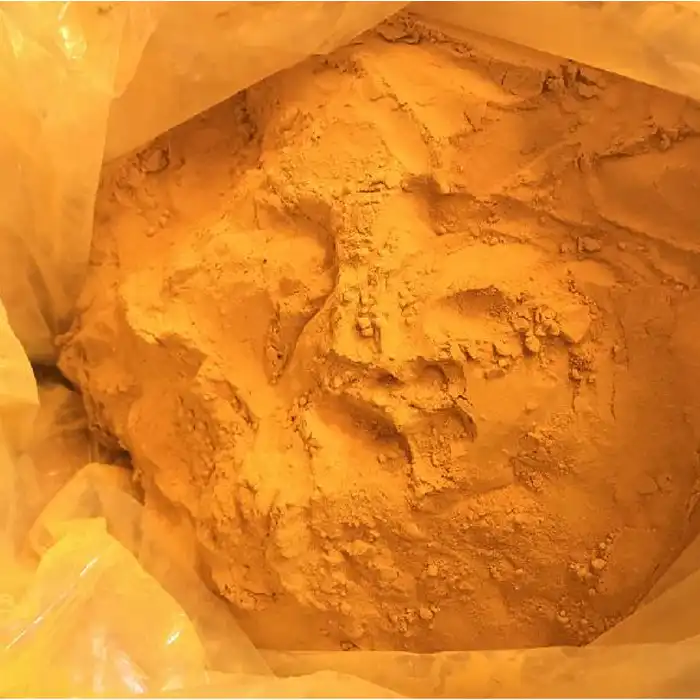| Basic Information | |
| Product name | Nutrient Supplements Magnesium Gluconate |
| Grade | Food Grade |
| Appearance | White crystal powder |
| Assay | 99% |
| Shelf life | 2 years |
| Packing | 25kgs/bag |
| Characteristic | Soluble in water, practically insoluble in anhydrous ethanol and in methylene chloride. |
| Condition | Stored in a cool and dry well-closed container, keep away from moisture and strong light / heat. |
Description
Magnesium gluconate (chemical formula: MgC12H22O14) is magnesium salt of gluconate.White or gray-white odorless fine powder.Soluble in water.Made by dissolving magnesium oxide or magnesium carbonate in gluconic acid.Used as nutrition supplement, buffer, curing agent and so on.
Function
Medical and health field
In the field of medicine and health, magnesium gluconate has become an important source of magnesium supplementation due to its easy absorption and utilization by the human body. Magnesium is one of the essential trace elements for the human body, involved in the activation of various enzymes and energy metabolism processes. It plays a crucial role in maintaining neuromuscular excitability, normal heart function, bone health, and immune system stability.
1. Cardiovascular health: Magnesium can lower blood pressure and reduce the risk of arrhythmia, which is of great significance for preventing cardiovascular diseases.
2. Nervous system and emotion regulation: Lack of magnesium may lead to emotional problems such as anxiety and depression. Therefore, magnesium gluconate is often used to relieve stress, improve sleep quality, and help people maintain a good emotional state.
3. Bone health: Magnesium is one of the important minerals for bone formation and maintenance, which works in synergy with calcium to promote bone growth and repair. Moderate supplementation of magnesium gluconate can help prevent osteoporosis and maintain bone health.
4. diabetes management: Magnesium plays a key role in insulin synthesis and secretion. Lack of magnesium may lead to insulin resistance and increase the risk of diabetes. Magnesium gluconate supplementation is helpful to improve insulin sensitivity and assist blood glucose control in patients with diabetes.
Food industry
In the food industry, magnesium gluconate is widely used as a natural food additive to regulate the acidity and alkalinity of food, enhance its taste and stability. It can not only enhance the taste and flavor of food, but also extend the shelf life of food to a certain extent.
1. Beverages and dairy products: Magnesium gluconate is often added to sports drinks and dairy products to supplement the minerals lost by athletes or consumers after exercise, promote muscle recovery and energy supplementation.
2. Baked goods: During the baking process, magnesium gluconate can be used as a leavening agent to help the dough ferment and expand, making baked goods softer and more delicious.
3. Nutritional supplements: With the increasing awareness of health, more and more nutritional supplements are adding magnesium gluconate to meet consumers' demand for mineral supplementation.
Cosmetics industry
In the cosmetics industry, magnesium gluconate is used as an important cosmetic ingredient due to its mild and safe properties. It can not only regulate the acidity and alkalinity of cosmetics, improve product stability, but also provide necessary mineral nutrients for the skin, promoting skin health.
1. Moisturizing and Nourishing: Magnesium gluconate has excellent moisturizing properties, which can lock in skin moisture, reduce water loss, and keep the skin hydrated.
2. Soothing and calming: For sensitive skin, magnesium gluconate has a certain soothing effect, which can alleviate discomfort such as redness, swelling, and itching caused by external stimuli.
3. Promote absorption: Magnesium gluconate can also be used as a penetration enhancer in cosmetic formulas, helping other active ingredients penetrate deeper into the skin and achieve better skincare effects.
In the field of agriculture
In the field of agriculture, magnesium gluconate is widely used as a foliar fertilizer to improve crop yield and quality. Magnesium is one of the important elements in plant photosynthesis, which has a significant impact on plant growth and development.
1. Promote photosynthesis: Magnesium is an important component of chlorophyll and participates in the process of photosynthesis in plants. Supplementing magnesium gluconate can increase the chlorophyll content in plant leaves, enhance photosynthetic efficiency, and promote plant growth.
2. Improve stress resistance: Magnesium gluconate can also enhance plant stress resistance, including drought resistance, cold resistance, disease resistance, and other abilities. Under adverse conditions, moderate supplementation of magnesium gluconate can help plants maintain normal physiological functions and reduce losses.
3. Improving fruit quality: In fruit tree cultivation, the application of magnesium gluconate can increase the accumulation of sugar in the fruit, improve its sweetness and taste, and make the fruit fuller and more brightly colored.
Application
An essential element for normal growth and good vision. Its benefit in maintaining healthy skin, bones, collagen and protein synthesis as well as proper sexual function and the immune system; help in the utilisation of vitamin A, Calcium and Phosphorous. A Zinc supplement may help to ensure against any deficit in the diet, especially during the winter months.


